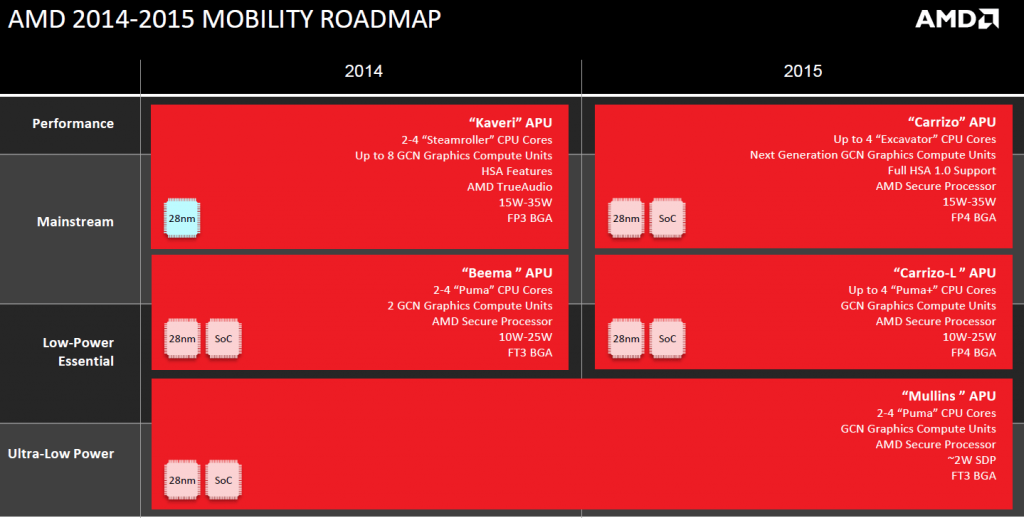Advanced Micro Devices on Wednesday implied that Taiwan Semiconductor Manufacturing Co.’s 20nm fabrication process would only be used for select products, whereas the main focus of the chip designer is on more advanced fabrication processes with FinFET transistors. Unfortunately, AMD did not reveal any actual plans.
“From an overall standpoint, today the bulk of our products are [made using] 28nm,” said Devinder Kumar, chief financial officer of Advanced Micro Devices, during his presentation at the Credit Suisse 18th Annual Technology Conference. “We will have certain products in 20nm and then we will go to FinFET from there. Our partnership with GlobalFoundries is where it comes into play in terms of what is the right point to go and intersect products with technology and introduce those parts out in the market.”
As reported, TSMC’s 20nm SOC (CLN20SOC), 16nm FinFET (CLN16FF) and 16nm FinFET+ process technologies rely on the same back-end-of-line (BEOL) interconnect flow, which means that from production cost standpoint the chips made using these three manufacturing technologies should be similar. The 20nm process utilizes planar transistors, whereas the 16nm technologies feature FinFET transistors. The latter allow chip developers to cut-down power consumption and increase performance compared to ICs that feature planar transistors.
Previously AMD stressed that it planned to transit its TSMC product lineup to 20nm fabrication process first and only then move on to 16nm process technology. As it appears, the company actually decided to limit usage of the 20SOC fabrication process to certain products.
AMD’s upcoming accelerated processing units aimed at high-volume market – code-named “Carrizo”, “Carrizo-L” “Kaveri” and “Seattle” – will be made using 28nm process technologies. Based on market rumours, only select graphics processors and, perhaps, console chips, will be made using 20nm process technology.
Unfortunately, it is completely unclear when AMD plans to start using TSMC’s 16nm FinFET fabrication process and GlobalFoundries’ 14nm FinFET manufacturing technology.
Discuss on our Facebook page, HERE.
KitGuru Says: While it now turns out that AMD will not become a major customer for TSMC’s 20nm process technology, the lack of any mentions of 16nm products in AMD’s roadmap (which only covers mobile chips) for next year looks a bit alarming. We will probably need to wait for AMD’s Financial Day to fill in the blanks…
 KitGuru KitGuru.net – Tech News | Hardware News | Hardware Reviews | IOS | Mobile | Gaming | Graphics Cards
KitGuru KitGuru.net – Tech News | Hardware News | Hardware Reviews | IOS | Mobile | Gaming | Graphics Cards




Funny. I just got through reading supposed leaked information from an engineer that apparently Microsoft plans to downsize their SoC in the Xbox One from 28nm to 20nm when they make a “Slim” redesign of the system. No word yet, though, on if Sony plans to do the same thing, but they could. However, they did not downsize the chip going from the original PS3 to the Slim, so it’s anybody’s guess.
Source: http://www.networkworld.com/article/2842455/microsoft-subnet/xbox-one-to-get-a-new-chip-slim-new-design.html
They werent the one that made the PS3’s chip. Nvidia was.
Really? That’s interesting. Although, I don’t see how that changes anything.
Well, maybe you think nVidia = IBM since PS3 is driven by IBM’s cell processor.